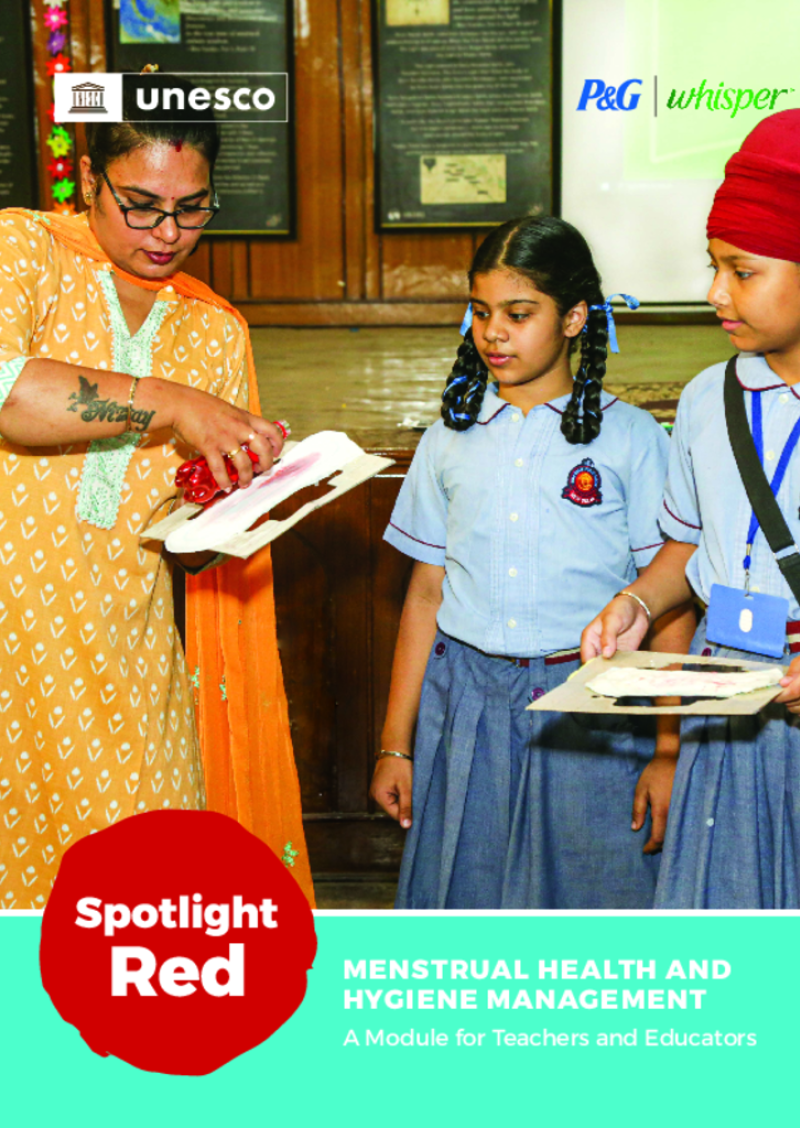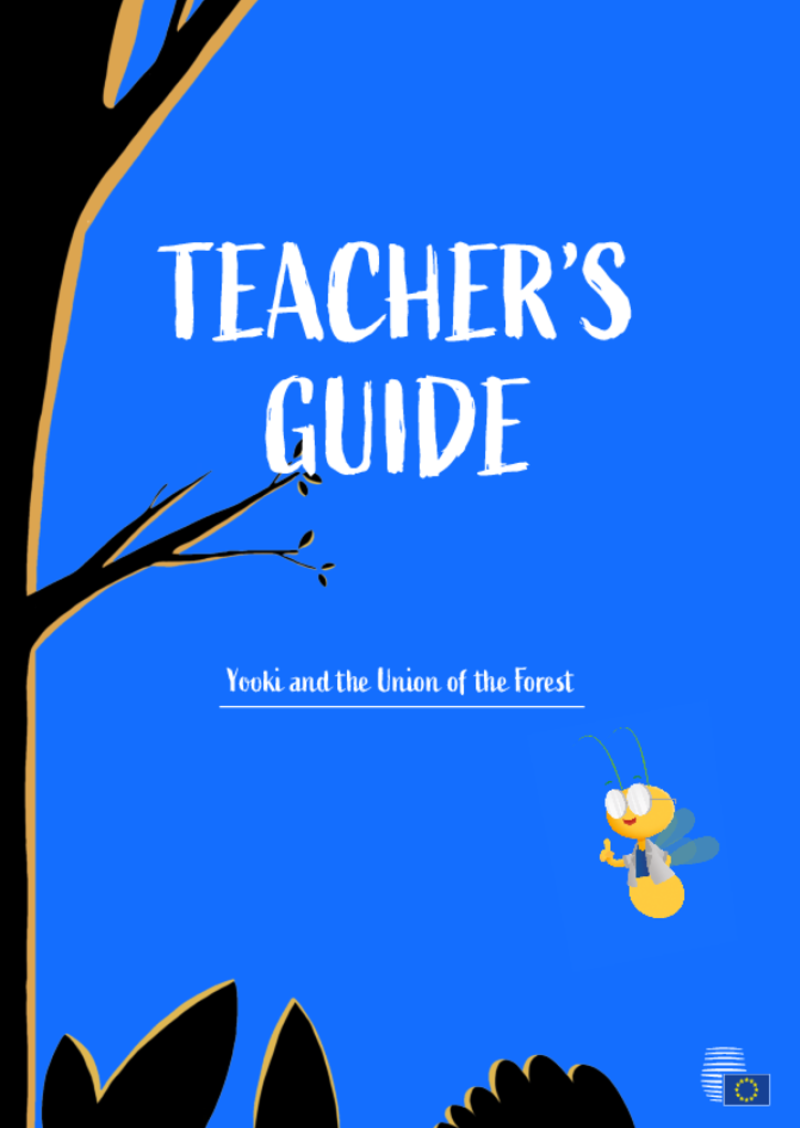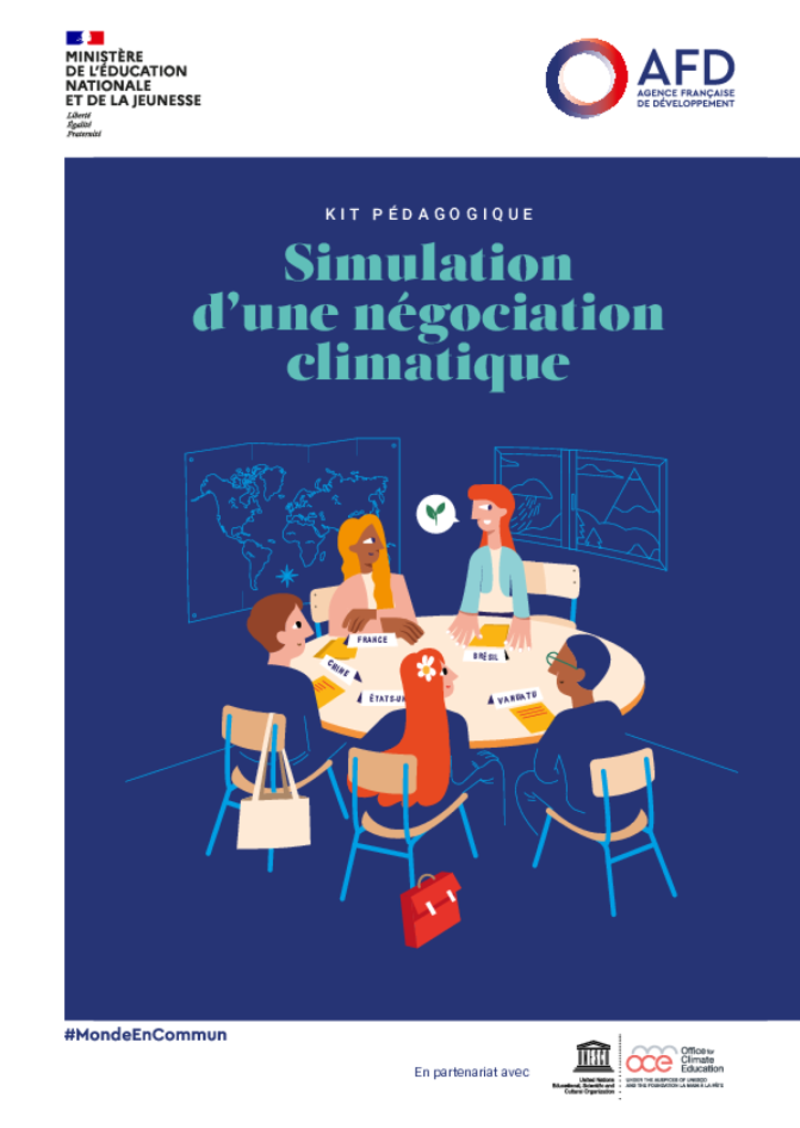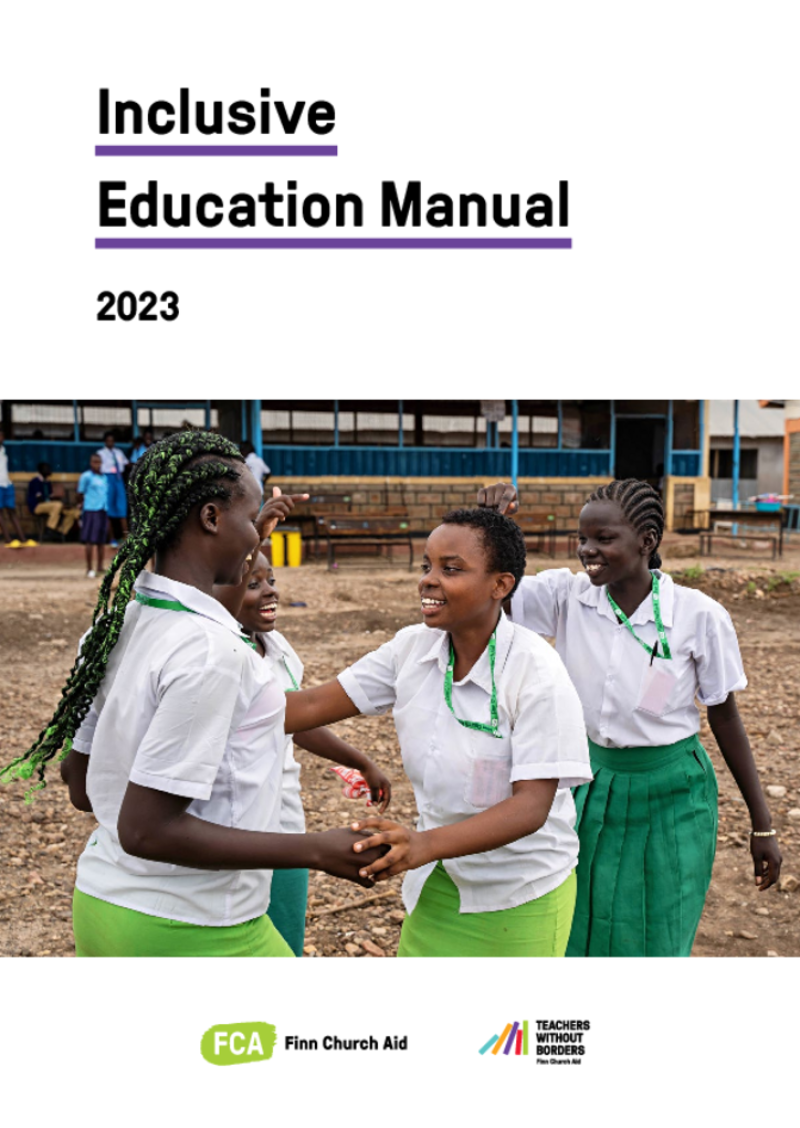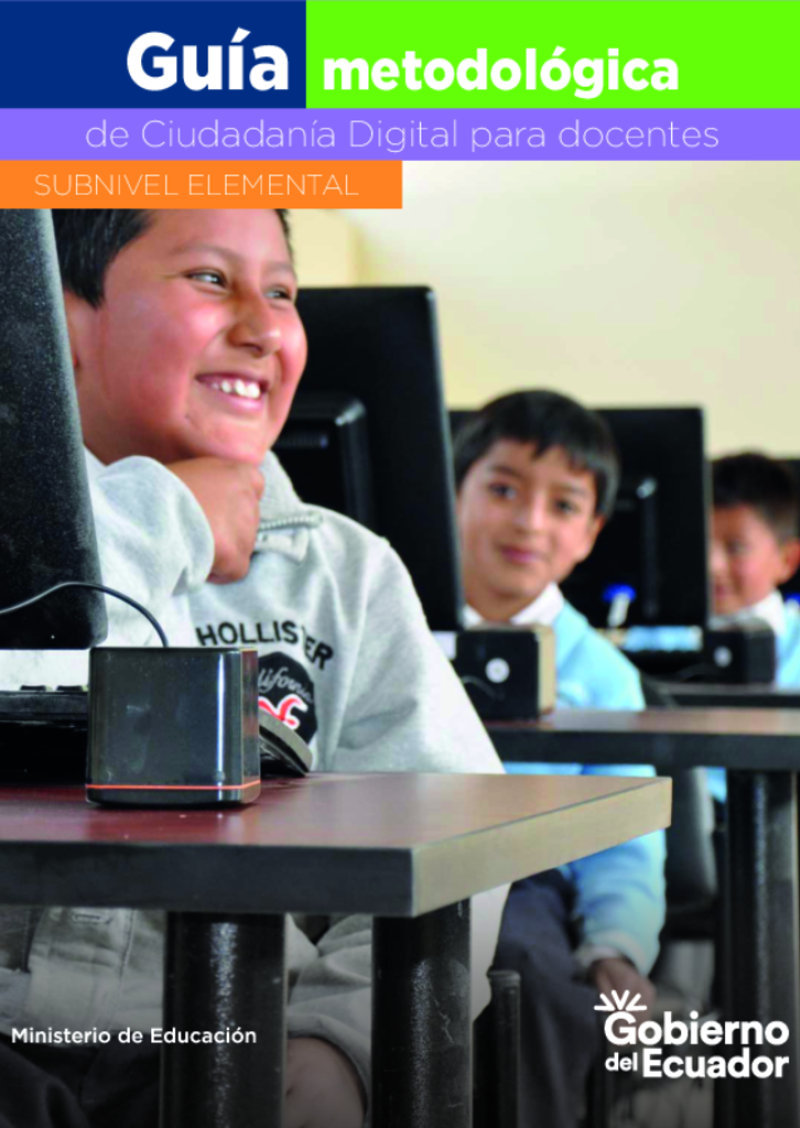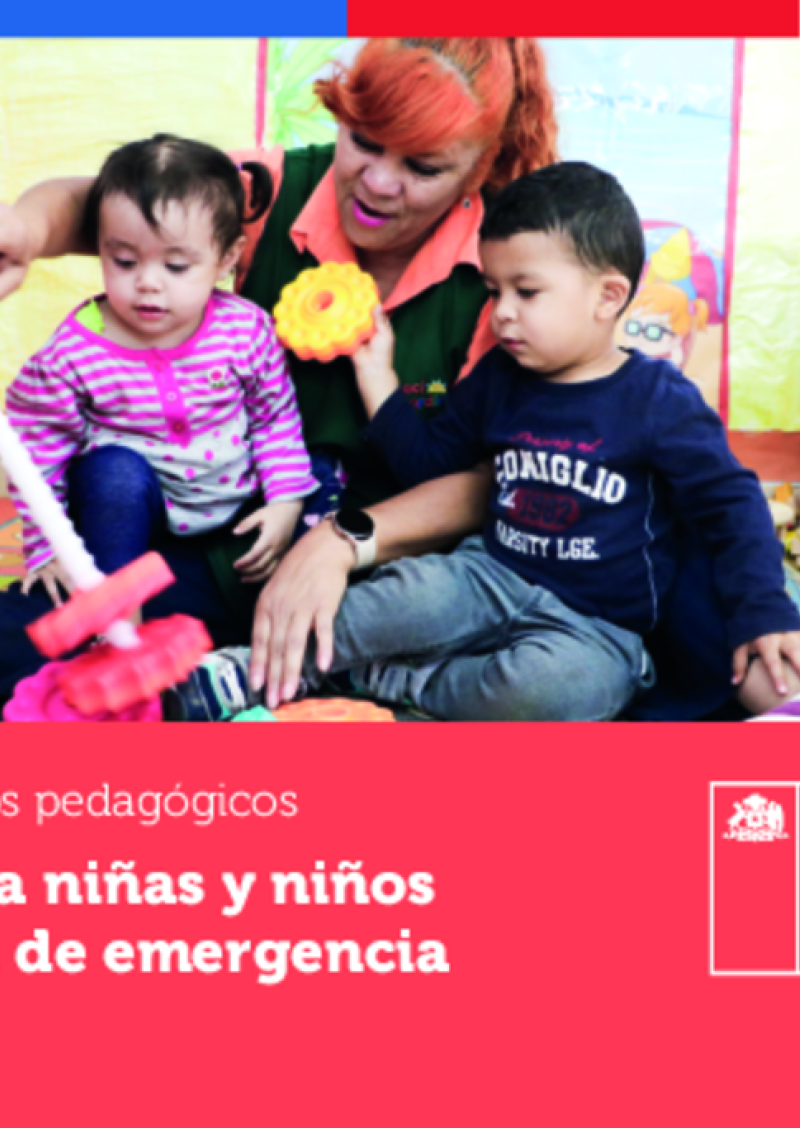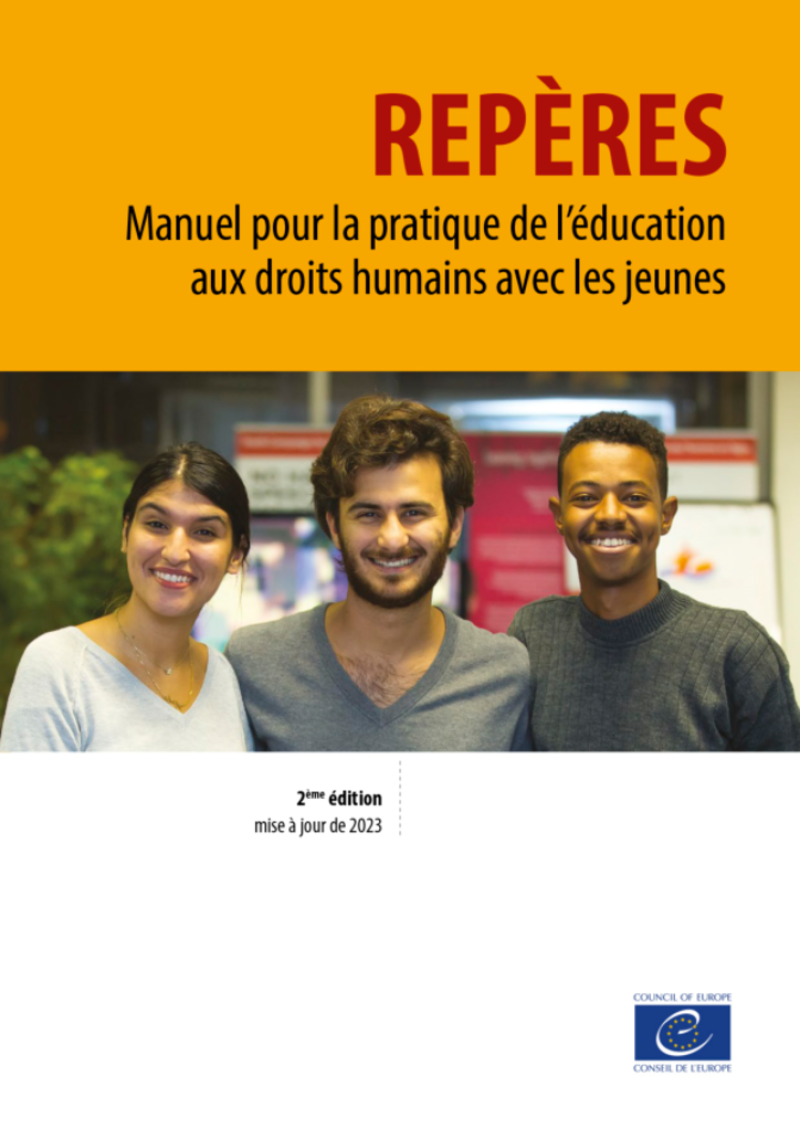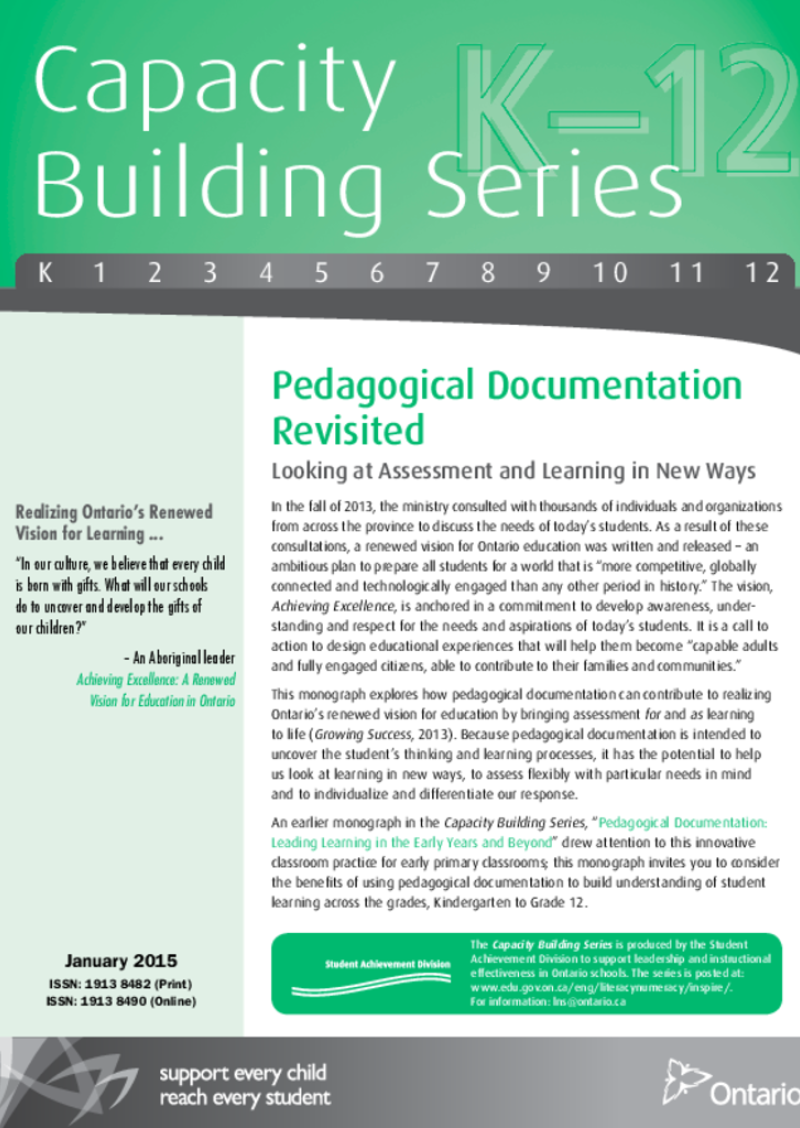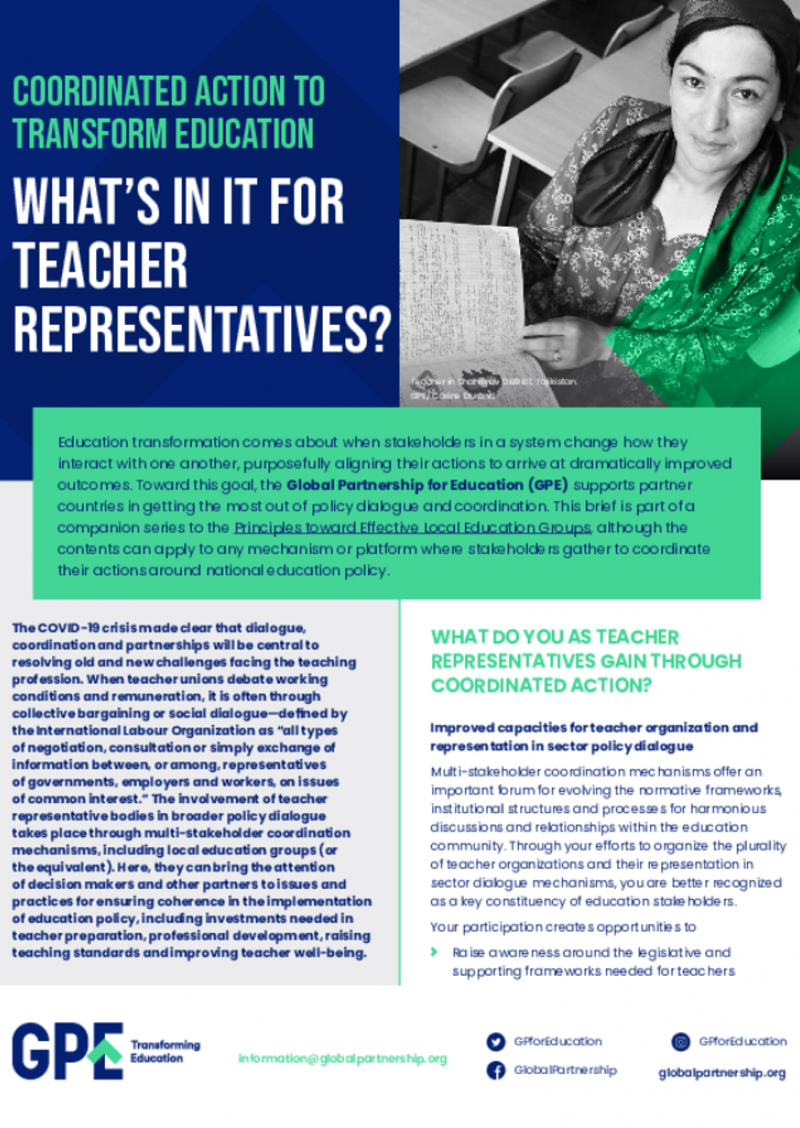Centro de Recursos para Docentes
Visualizar 1 - 20 de 22
Menstrual health and hygiene management: a module for teachers and educators
This publication is part of a series of teaching-learning modules developed by UNESCO and P&G Whisper India with the goal of integrating period and puberty education in school curricula. The series is structured into five modules that address key intervention areas related to MHHM, including: 1. building a curriculum that understands the biological and social impacts of puberty; 2. guiding teachers on the menstrual hygiene education curriculum; 3. providing teaching-learning materials geared towards addressing the specific needs of girls with disabilities; 4. highlighting the impact of gender inequalities on menstrual health and hygiene for both girls and boys; and 5. addressing nutritional approaches related to menstrual health and hygiene. This teaching-learning module was developed for teachers working in various contexts and with diverse needs and aims to support them in initiating conversations around MHHM and including the subject in school curricula for students across the gender spectrum. The purpose of this module is to provide facilitators with multiple and comprehensive strategies that lead to positive changes in attitudes, behaviours and practices around menstruation. Each chapter contains explanations of the subject at hand, stories, case studies, learning activities, illustrations and tables designed to provide a better understanding of the issues surrounding MHHM. A glossary is also included to ensure that you, the reader, become familiar with different terms related to menstruation.
Teacher’s guide – Yooki and the Union of the Forest
This teacher’s guide is part of an educational package designed to explain the European Union to children aged 7–9. The guide offers lesson plans, thematic discussions, group games, and activities to help children understand the EU's history, functions, and concepts like peace and conflict resolution. It provides practical tools and printable materials, allowing teachers to tailor the content to their pupils' needs and learning objectives. The package includes an illustrated story, "Yooki and the Union of the forest," an activity book, "Learn with Yooki," and this online teacher’s guide. All associated ressources, including the full story can be downloaded in all European Union languages through this link.
Simulation d'une négociation climatique, kit pédagogique à l'usage des enseignants du secondaire
Ce guide de simulation de négociation climatique, destiné aux enseignants du secondaire, s'appuie sur le référentiel national de compétences climatiques français. Il propose des activités pédagogiques pour comprendre les enjeux climatiques, simuler une COP et agir pour le climat. Adaptable aux différents contextes, il inclut des ressources multimédia et utilise des pédagogies actives comme les jeux de rôle et les débats. Les séances sont conçues pour être flexibles, permettant aux enseignants de choisir celles qui répondent le mieux à leurs besoins tout en maintenant un équilibre entre compréhension et action.
Guide - Mise en oeuvre d'une communauté d'apprentissage professionnelle en milieu scolaire
Ce guide destiné aux enseignants et directeurs d’établissement vise à faciliter la création de communautés d’apprentissage professionnelles (CAP) dans les écoles. Il résulte de recherches collectives et est conçu pour une utilisation autonome. Le guide se divise en trois chapitres : le premier clarifie le concept de CAP, le deuxième propose des outils pour leur mise en place et suivi, et le troisième explore l'usage des TIC pour leur développement. Il encourage la collaboration et le partage d’expertise pour améliorer les pratiques pédagogiques et le développement professionnel continu des enseignants.
FCA & TWB Inclusive Education Manual
This Teacher Training Manual on Inclusive Education supports teachers and other education personnel’s continuous professional development in inclusive, quality education especially in diverse low resource contexts and is adaptable for use anywhere in the world. The Inclusive Education Manual directly contributes to realization of several targets of the Agenda 2030 Sustainable Development Goal (SDG) 4 “ensuring inclusive and equitable quality education for all”.
The manual was developed by Finn Church Aid (FCA) and Teachers Without Borders (TWB) Network Finland. The content has been collected and built on the numerous good materials and practices used and co-developed by FCA staff and TWB education experts in different countries and contexts.
The training manual consists of three (3) training modules that can be used flexibly:
- Education, Teacher and School Community,
- Inclusive Education, and
- Positive Classroom and Learning Environment for All Learners.
The content design allows the trainer or facilitator to pick individual modules or sessions and adapt the training content according to the context and target group’s needs.
We hope you find it useful!
Guía metodológica de Ciudadanía Digital para docentes - Subnivel Elemental
Este recurso sobre ciudadanía digital ofrece definiciones clave y aborda problemáticas como la alfabetización digital, la convivencia en línea, y la protección y seguridad. Se exploran temas como la autorregulación, la privacidad, el discurso de odio, el cyberbullying y el grooming. Además, se fomenta la reflexión sobre noticias falsas, identidad digital y estereotipos, así como la creatividad y participación en el entorno digital. También se discuten los derechos digitales y la legislación relacionada con el uso seguro de Internet para niños y adolescentes en Ecuador.
Ficha para equipos pedagógicos - Acompañar a niñas y niños en situación de emergencia
Este recurso para docentes ofrece ejemplos y materiales adicionales para apoyar a los educadores que trabajan con niños de parvulario en situaciones de emergencia. Las comunidades pueden enfrentar momentos de crisis los cuales afectan a los niños en sus contextos familiares, educativos y comunitarios. La guía ayuda a identificar estos efectos adversos y proporciona apoyo oportuno para mitigar el impacto en los niños, uno de los grupos más vulnerables en estas situaciones.
Educajeux - Manuel de pédagogie vidéoludique
Ce manuel explore le jeu vidéo comme outil d’apprentissage interdisciplinaire et support culturel à décrypter. Destiné aux enseignants et éducateurs, il propose des ateliers variés et des fondements pédagogiques pour intégrer le jeu vidéo dans les pratiques éducatives. En favorisant l’apprentissage par l’essai-erreur et le « learning by doing », cette ressource encourage à utiliser le jeu pour illustrer des notions abstraites et renforcer l’engagement des élèves. Elle offre aussi des essais contextualisant ce type d’apprentissage, invitant les enseignants à reconsidérer ce média et à l’utiliser comme levier pédagogique innovant.
Pedagogies of Belonging: Educators Building Welcoming Communities in Settings of Conflict and Migration
What would it take to ensure that all young people have access to learning that enables them to feel a sense of belonging and prepares them to help build more peaceful and equitable futures? This is a question we have found educators in contexts of conflict and migration ask of themselves each day. And each day, in classrooms around the world, educators are acting in response to this question.
Educators are figuring out what to teach, ways to teach, and how to foster relationships of learning and belonging.
We learn from educators how they create space for dissent, for dialogue, for trust, for new identities, for future-building, and how they envision and build newly imagined and welcoming communities.
Pedagogies of belonging, featured in this book and in its title, emerge from these ways of thinking and acting by educators. We see across educators that what they teach, how they teach, and why they teach in the ways they do come together to enable all young people to feel a sense of belonging and prepare them to help build more peaceful and equitable futures.
This book is about educators and for educators. It is about the practices educators have developed to create welcoming communities in settings of conflict and migration. Each chapter is a “microportrait” of one educator who we have come to know by spending time in their classroom and school.
We focus on the why and the how of practices educators use. We show, through text and art, how educators learn about their students’ experiences, needs, and desires. We describe how educators develop practices to meet these learning and belonging goals. And we recognize how educators address struggles that necessarily arise in this work. We hope the practices give us each ideas to try out in our own classrooms, schools, and other educational sites.
Each microportrait is grounded in research about educator practices. Authors of the microportraits came to know the educators through research projects that included interviews, observations, and sometimes participatory methods. Each project was at least a few months and at times spanned many years. The microportraits include links to articles that can support deeper learning about the contexts and practices of the educators.
This book is a collective project, and we welcome your participation. The intention of this book is that it lives and grows to include more microportraits over time and more patterns of practices that may emerge. Please be in touch with suggestions, to share your experiences with the practices of these educators, or to contribute a microportrait to the collection.
Faire des manuels scolaires des outils de l'égalité entre les femmes et les hommes
Ce guide invite les enseignants à réfléchir aux inégalités de genre dans les manuels scolaires. Elle présente des bases légales et normatives sur lesquelles s’appuient cette question dans le cadre Français, des chronologies, infographies sur l’égalité de genre et l’élaboration des programmes. On y retrouve différents outils à destination des enseignants pour les accompagner au moment d’aborder ces sujets en classe dans différentes matières, ou plus largement dans la vie scolaire.
Repères - Manuel pour la pratique de l'éducation aux droits humains avec les jeunes
Ce manuel à destination des enseignants propose différentes ressources pour aborder la question des droits humains auprès des élèves allant de la définition des différents thèmes abordés tel que la citoyenneté, l’environnement, la mémoire, l’égalité de genre entre autres. Il y est également proposé un ensemble d’activités sous différentes formes (théâtre, audiovisuelle, études de cas, analyses de média). Il s’agit d'un guide complet qui accompagne l’utilisateur depuis le choix de l’activité, à sa mise en place auprès des élèves. Il est également accessible depuis la plateforme suivante : Repères.
Pedagogical Documentation Revisited
This monograph explores how pedagogical documentation can contribute to realizing Ontario’s renewed vision for education by bringing assessment for and as learning to life. Because pedagogical documentation is intended to uncover the student’s thinking and learning processes, it has the potential to help us look at learning in new ways, to assess flexibly with particular needs in mind and to individualize and differentiate our response.
Pedagogical documentation allows educators to see how thinking, learning, curriculum and assessment are intertwined. It offers them the opportunity to contribute to a fuller understanding of learning and to advance the research on effective practice, both locally and internationally.
How to Train 21st Century Teachers
Magdalena Brier, Managing Director at ProFuturo speaks with Mary Burns, ICT and teacher training specialist, about technology, education, teachers and the future. They delve into questions such as what skills a teacher must have to teach with technology, or what are the main obstacles that they encounter when trying to do so.
Watch this video to know more about the future of digital education and to listen to key advices on how to use technology in the classroom provided by Mary Burns who has a 40 years’ experience on teacher training.
Teaching to prevent atrocity crimes: a guide for teachers in Africa
This is UNESCO's first resource with a regional focus on teaching to prevent atrocity crimes. It was developed with the United Nations and in partnership with the UNESCO International Institute for Capacity Building in Africa (IICBA). The guide was informed by exchanges with African stakeholders and advisors and tested through a piloting exercise with African teachers and students. It provides principles for teachers to consider in facilitating learning and constructive discussions with their students.
Teacher booster videos
A series of learning videos for teachers and other actors in lifelong learning designed to boost their capacity to face the challenges of remote learning and raise awareness of the importance of key competences for all learners.It is an Open Education Resource produced under the European Training Foundation’s (ETF) Creating New Learning (CNL) initiative in close partnership with the European Commission’s Joint Research Centre.
Reset earth teaching toolkits
This toolkit provides teachers with ideas, activities, games and discussions to engage students on the issues of the ozone layer. It includes comprehensive lesson plans for the age ranges of 7-12 and 13-18 and a simulation-style game, all accessible through the education portal of the Apollo's Edition of the Reset Earth campaign.
Coordinated action to transform education. What's in it for teacher representatives?
This briefs presents what teacher representatives gain through coordinated action. The involvement of teacher representative bodies in broader policy dialogue takes place through multi-stakeholder coordination mechanisms, including local education groups (or the equivalent). Here, they can bring the attention of decision makers and other partners to issues and practices for ensuring coherence in the implementation of education policy, including investments needed in teacher preparation, professional development, raising teaching standards and improving teacher well-being.
How to design an electronic lesson in 24 hours
Learning design for smart learning.
Defines the general landscape of instructional design in smart education.
Understand the five steps of lesson planning in Smart Learning.
Explains the requirements for designing a session in smart learning.
Design a smart learning session using Google Classroom.
How to become a remote teacher in 24 hours
Recognize e-learning technology.
Identify the main components of e-learning.
Identify tools for managing the educational process in e-learning.
Uses the tools of the educational process: Moodle Cloud.
